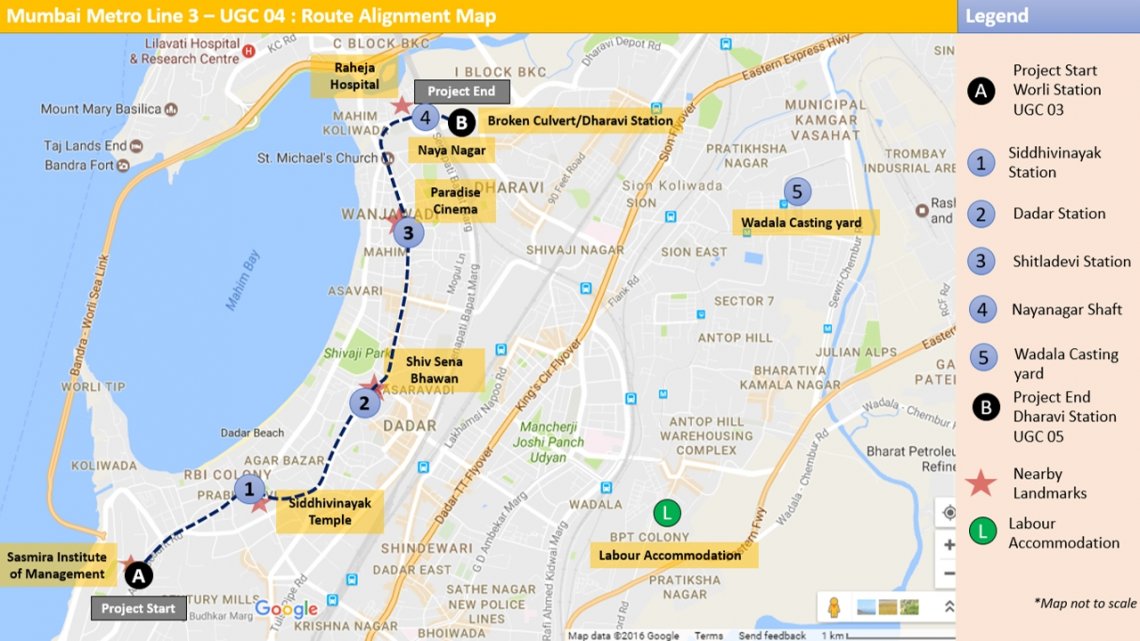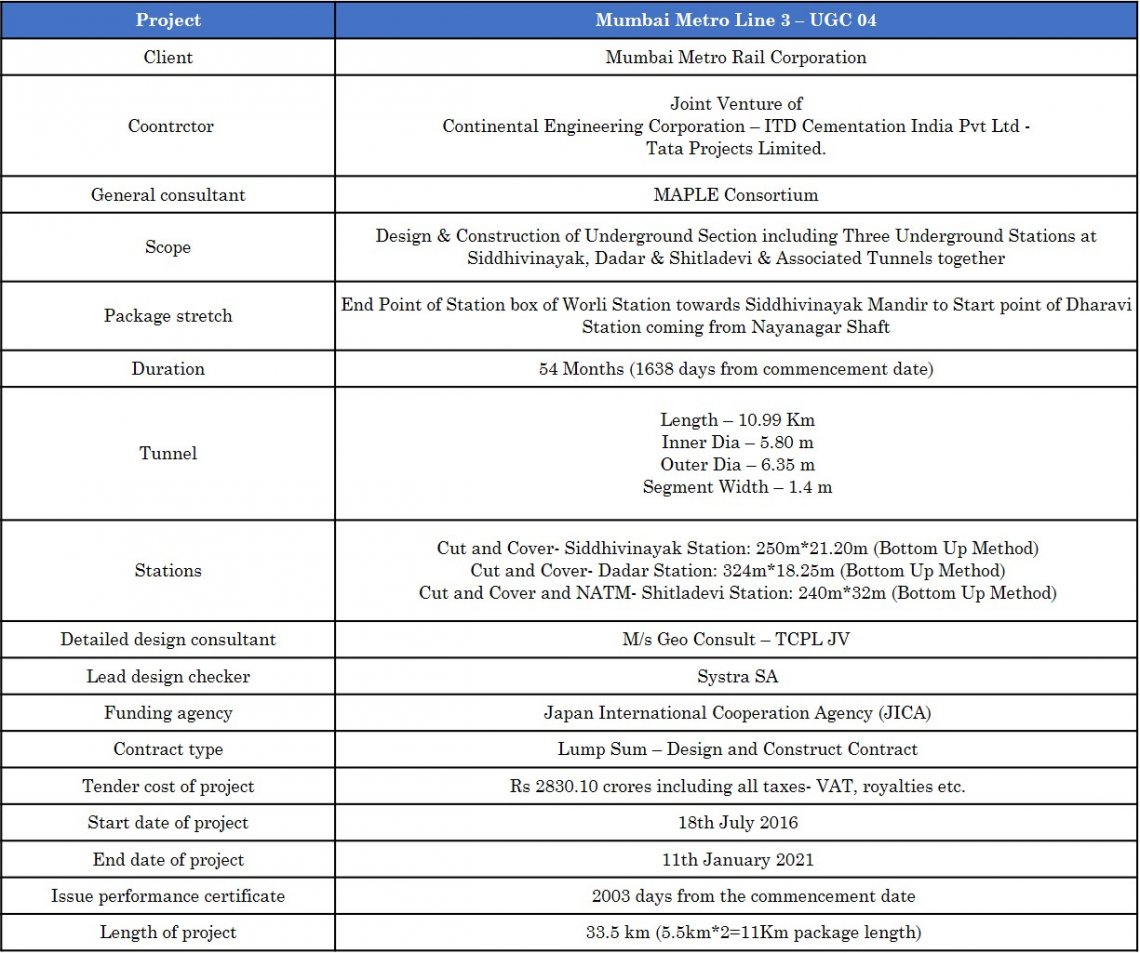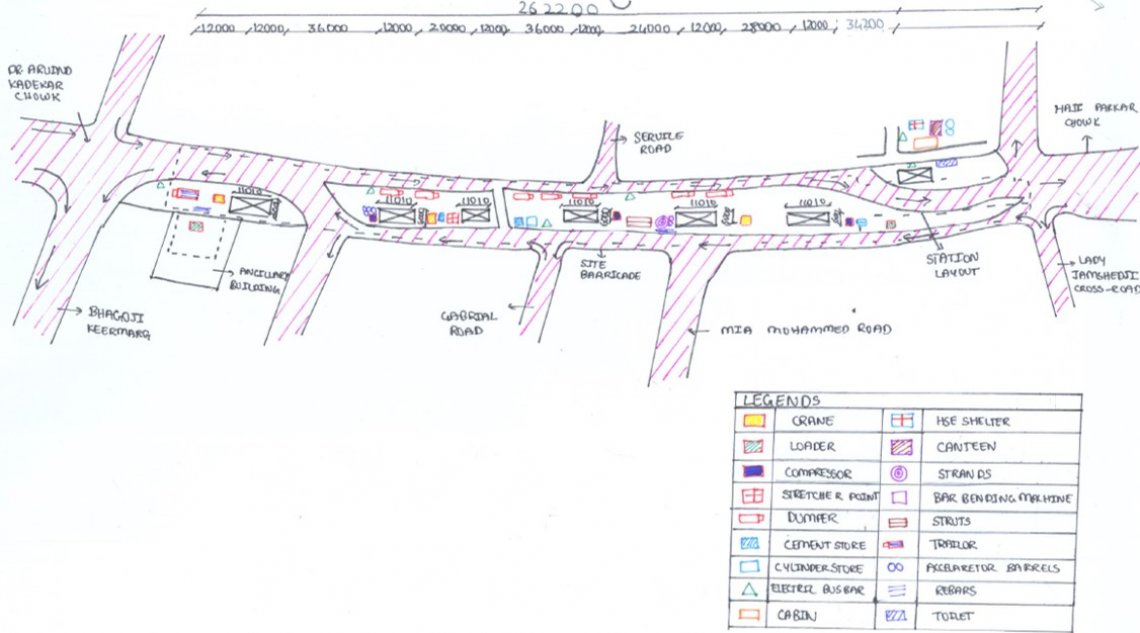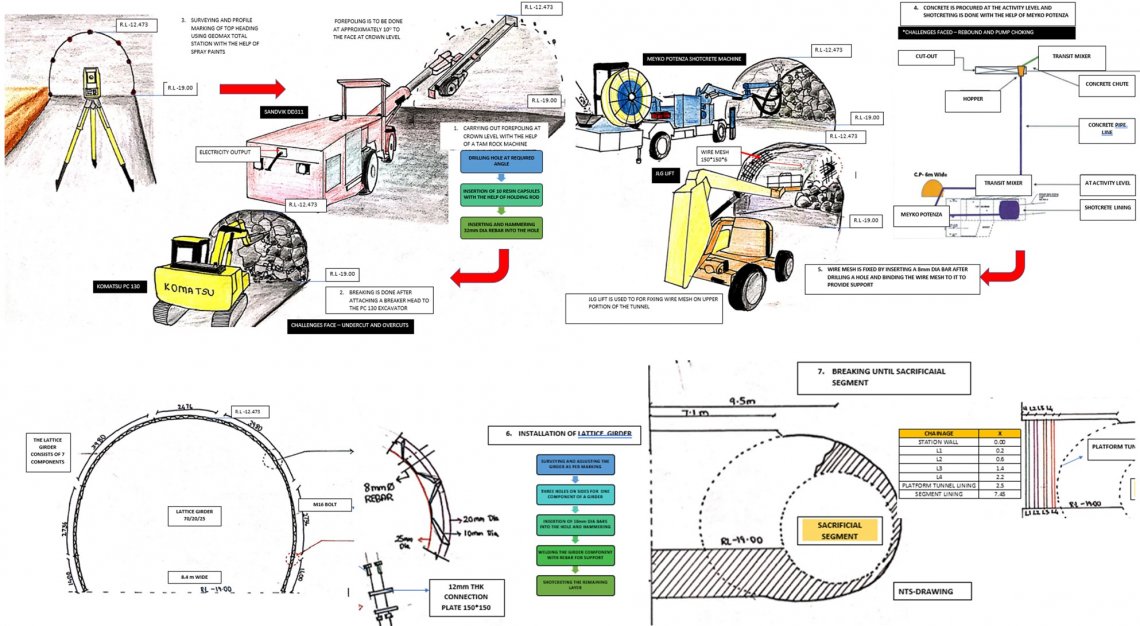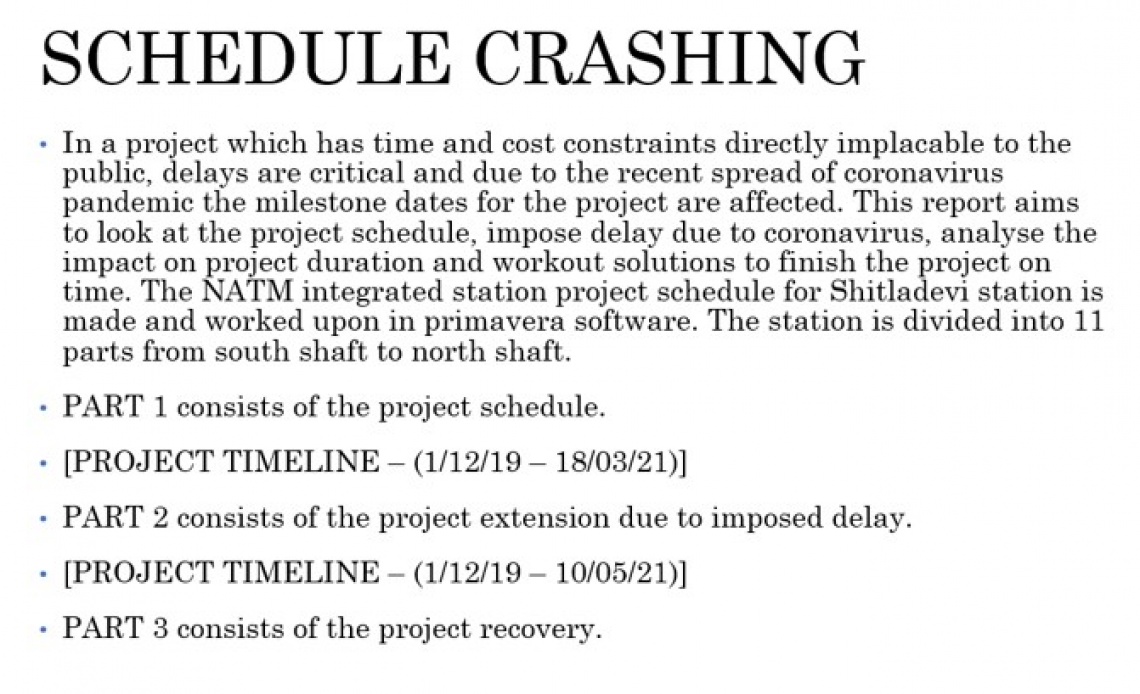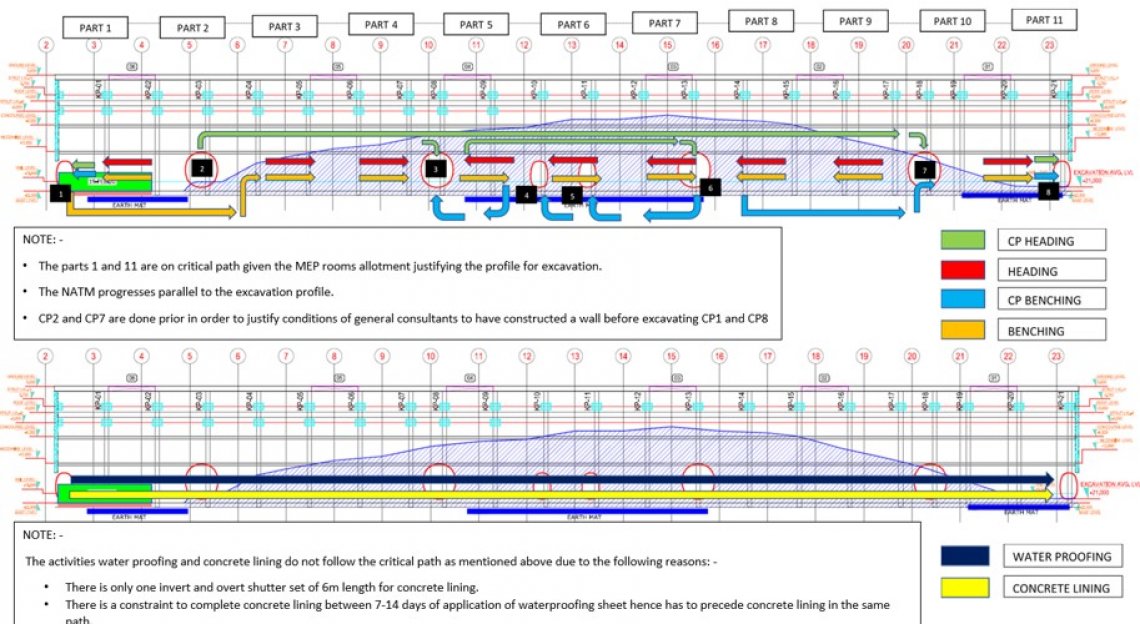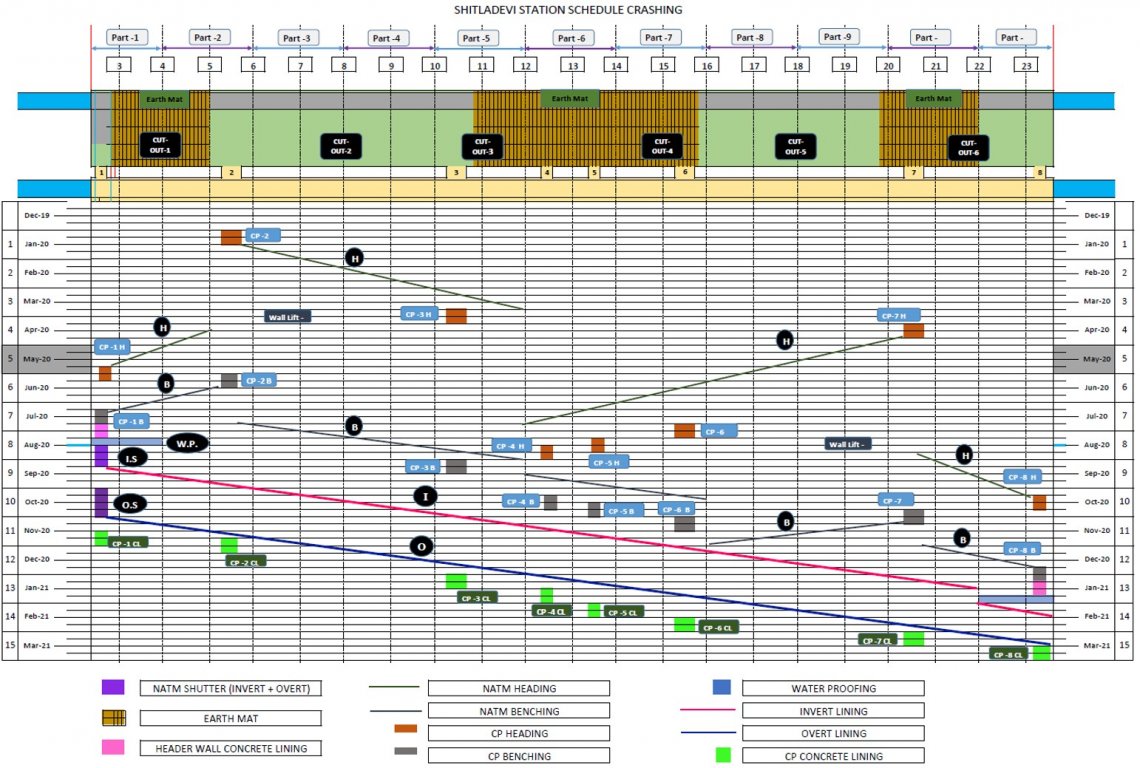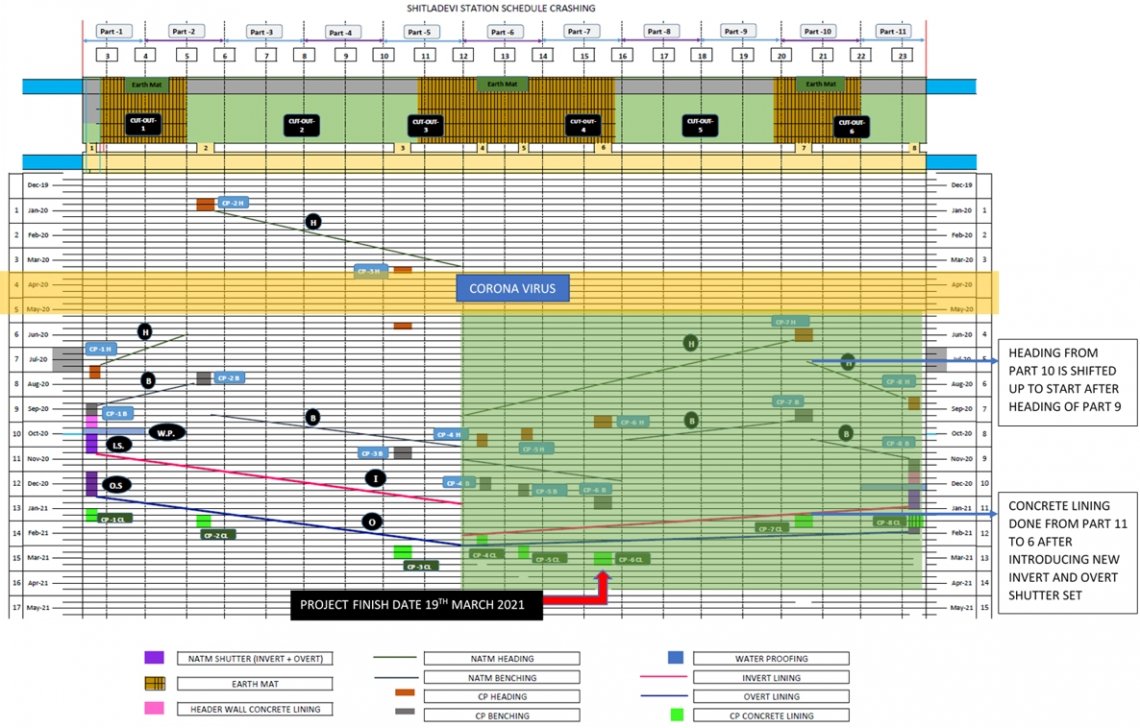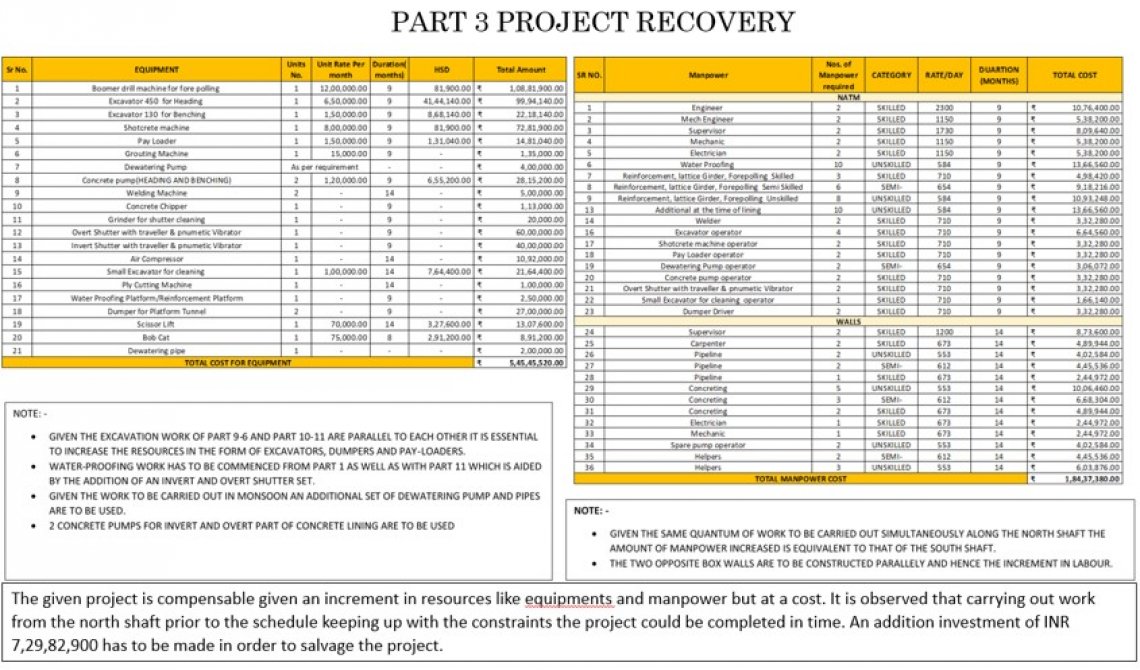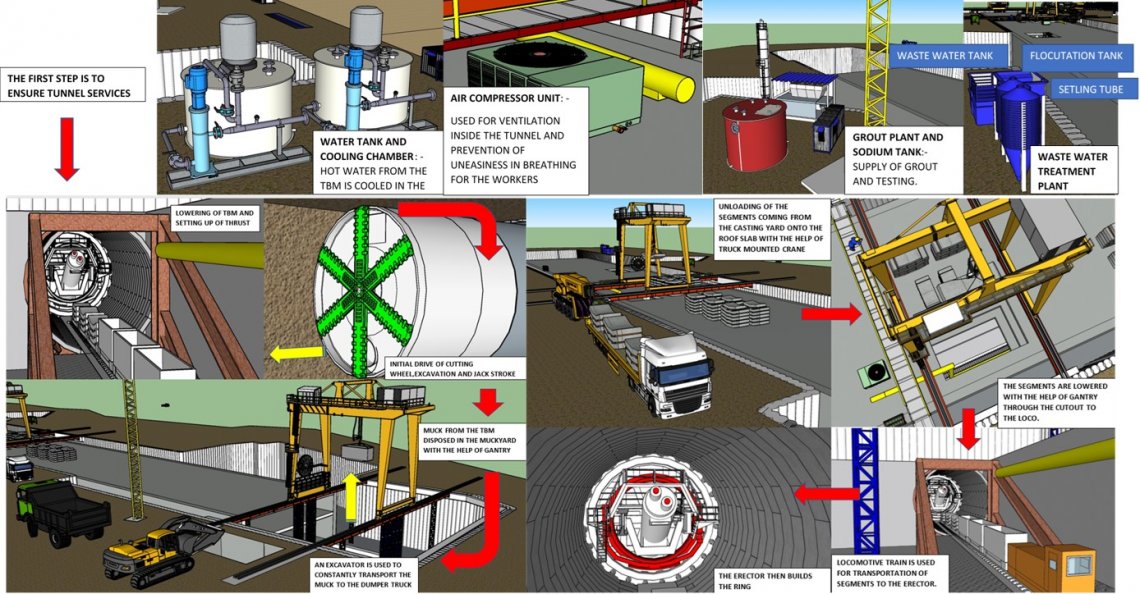MUMBAI METRO LINE-3 UGC-04 (TATA PROJECTS-ITDC-CEC JV)
- Student jay patel
- Code UC7916
- Faculty Technology
- Tutor/s Reshma Shah,Devanshu Pandit,Bhargav Tewar,Paresh Shah,Ganesh Devkar,Abhi Jhaveri,Project Training
Though the financial capital of the country is well equipped with the enormous and well-established network of local trains and busses; there are still millions who face many problems in travelling. Mumbai has witnessed a phenomenal growth in population and employment. The trend is expected to continue in the future. The job opportunities it offers have served as a major attraction for immigration from hinterland of Maharashtra as well as from all parts of the Country. The dominant feature of the passenger movements in Mumbai is overwhelming dependence of travel on transport modes and walk. In MMR, public transport systems are overcrowded, and the road network is congested as there is a large gap between the demand and supply. To decongest the existing public transport systems and increase mobility across the Region, MMRDA unveiled plans for an extended Colaba-Bandra-SEEPZ metro line in 2011. According to its earlier plans, a 20-km metro line from Colaba to Bandra was to be constructed, running underground for 10 kilometres from Colaba to Mahalaxmi, and then on an elevated track from Mahalaxmi to Bandra. The MMRDA decided to extend the line to the Chatrapati Shivaji International Airport to increase ridership. And then finally extended the line to Aarey Colony near SEEPZ. The 33.5-kilometre Colaba-Bandra-SEEPZ will have 27 stations and would be the city's first fully underground metro line.The MML-3 would bring multiple benefits such as comfortable Air-conditioned travel for more than 16 lakh commuters daily, reduction in travel time, reduction in air & noise pollution, improving safety & security of the citizens etc. Upon completion, this fully underground corridor with 27 stations would connect Six business districts, 30 educational institutes, 30 recreational facilities and domestic as well as international airport terminals. It will have five interchange points for suburban railway and one each for Monorail and ‘Versova-Andheri-Ghatkopar’ Metro-1.
